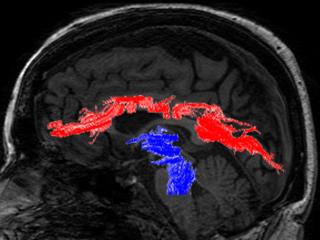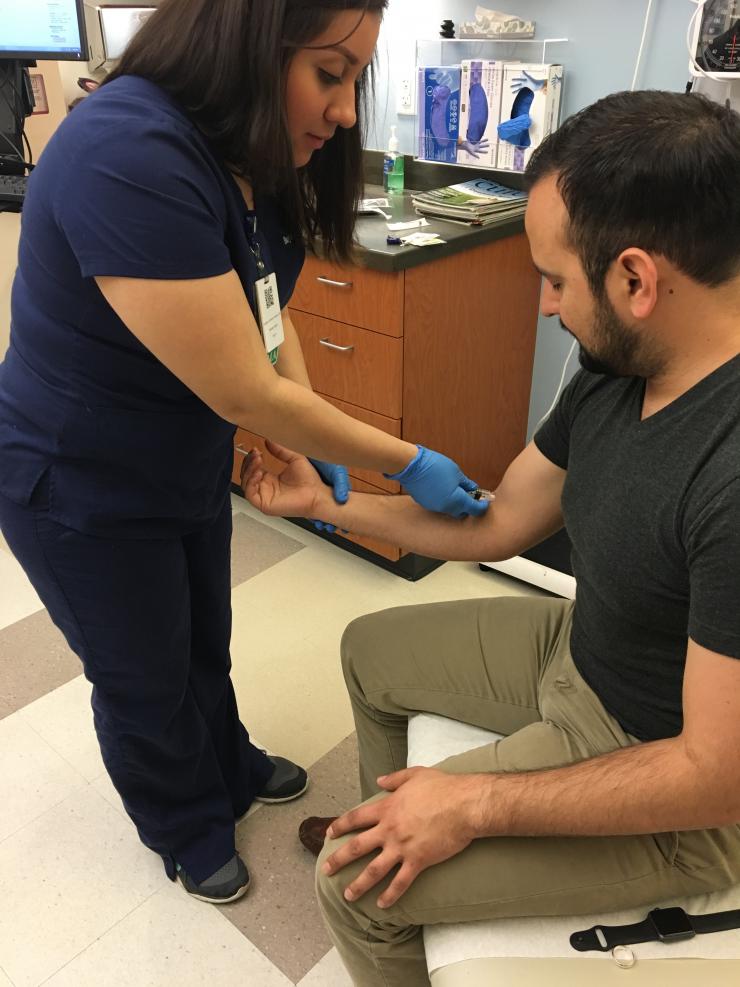Brain-Immune Interactions as the Basis of Gulf War Illness: Gulf War Illness Consortium

Baylor is a collaborating site for this multisite project that includes a coordinated series of clinical and preclinical studies to provide a comprehensive understanding of the pathobiology of Gulf War Illness (GWI). Assessment of neurological, immune, endocrine, and genetic parameters are conducted in Gulf War veterans at three sites: Houston, Boston, and Miami. Findings from this consortium, based at Boston University, will be used to identify brain-immune pathways that can be targeted for developing diagnostic tests and treatment interventions.
Diverse Biological Indicators in Gulf War Illness: Are They Replicable? Are They Related?

This project is assessing a broad range of biological measures, including brain imaging and tests of immune function, inflammation, adrenal function, and other parameters. These measures are used to identify the range of biological processes that underlie the symptoms of Gulf War illness and differentiate veterans with Gulf War illness from healthy veterans. Veterans are evaluated over two consecutive mornings at our clinic site.
Assessment of MRI-Based Markers of Dopaminergic Integrity as a Biological Indicator of Gulf War Illness
This project utilizes brain imaging data to assess brain structures and processes of high interest for understanding the neuropathology of Gulf War illness. It includes in-depth analysis of the integrity of the corticostriatal circuit using high resolution diffusion imaging.
Examination of Plasma PON1 Paraoxonase Activity and Genotype in Gulf War Veterans
This study evaluates the degree to which genetic variants of the enzyme PON1 are associated with veterans’ vulnerability to long-term effects of neurotoxicant/cholinergic exposures during the Gulf War and their risk of developing Gulf War illness.
Persistent Hormonal Changes in Gulf War Veterans
This study assesses changes in the major pituitary hormone systems in Gulf War veterans, including the growth hormone (GH) axis, gonadotropin axes, thyroid hormone axis, and HPA axis. The study will also determine if hormone changes are contributing to common Gulf War illness symptoms, such as severe fatigue, chronic pain, and attention and memory problems.
Glutamate Receptor and Kynurenine Pathway Functioning in the Pathobiology of Gulf War Illness
This project is evaluating neuroinflammatory processes and NMDA receptor functioning in Gulf War veterans to identify specific pathways that can be targeted for treatment. Biomarkers will be compared in healthy veterans and veterans with Gulf War illness.
Investigating Gene-Environment Interactions in Multiple Cohorts of 1990-91 Gulf War Veterans
This study investigates the degree to which genetic variability in the enzyme butyrylcholinesterase (BChE) contributed to differences in long-term health outcomes in relation to exposures during the Gulf War. Gene-exposure interactions will be compared in four independent cohorts of 1990-91 Gulf War veterans.
Gulf Coast Center for Precision Environmental Health (GC-CPEH)
This multi-institutional and multidisciplinary center provides resources and expertise to support impactful environmental health research in the Gulf Coast region. Community projects include development of a Military Exposures and Health resource for military personnel and veterans in the Gulf Coast region.








